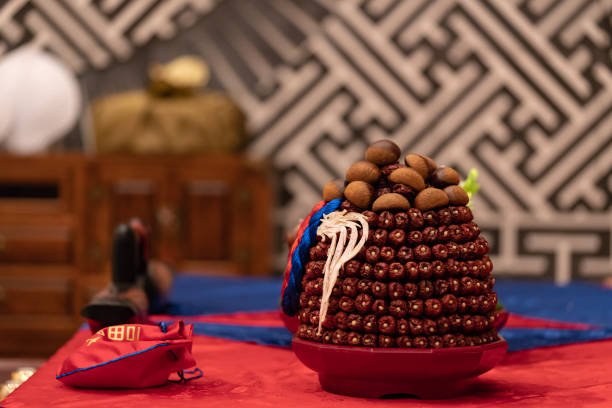Introduction
Ever stumbled upon a word so peculiar that it instantly grabs you by the collar and refuses to let go? That’s exactly what happens when you encounter Gugequshi. It’s not just a jumble of syllables—it feels like a secret chant, an echo from forgotten lands, or perhaps the title of a myth passed down through centuries.
Now, you might be asking: What on earth does Gugequshi even mean? That’s the magic—it doesn’t have a rigid definition in the way most words do. Instead, it invites you to imagine, to explore, and to craft your own meaning around it. And honestly, isn’t that what makes life interesting—those unsolved riddles, those little mysteries that tug at our sense of wonder?
This article will walk you through the many faces of Gugequshi: its speculative origins, cultural symbolism, artistic appeal, and its role as a metaphor for the human spirit. Grab a cup of coffee (or tea if that’s your vibe), because we’re about to take a whimsical, thought-provoking journey together.
What Is Gugequshi Anyway?
Let’s start with the basics. Gugequshi doesn’t appear in conventional dictionaries, encyclopedias, or historical archives. Yet, it has the texture of something important, doesn’t it? The sound itself rolls off the tongue like a melody that could belong to:
-
An ancient folk song sung around firelight.
-
A ceremonial chant whispered by elders.
-
A code word passed in secret societies.
-
Or even the name of a hidden city on old explorers’ maps.
The mystery isn’t a flaw—it’s the whole point. By refusing to be boxed in, Gugequshi opens the door for interpretation, giving everyone a chance to connect with it in their own way.
The Linguistic Puzzle
Language enthusiasts love words like Gugequshi, because they’re playgrounds for the imagination. Breaking it down, the syllables “Gu-ge-qu-shi” feel rhythmic, almost musical. They echo:
-
“Gu” – a grounding syllable, like a drumbeat.
-
“Ge” – airy and melodic, suggesting a song.
-
“Qu” – quick, sharp, mysterious.
-
“Shi” – soft, whisper-like, the perfect ending.
Put them together, and you’ve got a word that sounds like a story unfolding—almost like a beginning, middle, and end contained in four beats.
The Mythical Origins of Gugequshi
Words without clear origins often sprout myths, and Gugequshi is no exception. Some say it may have roots in an old, nearly forgotten civilization. Others speculate it’s a spiritual mantra, passed down through oral traditions. Let’s spin a few possibilities, shall we?
1. The Ancient Song Theory
According to this tale, Gugequshi was once a song sung by travelers crossing vast deserts. Its rhythm kept their spirits high, reminding them of home and courage.
2. The Lost City Legend
Imagine a hidden city named Gugequshi, tucked away in valleys unseen by modern maps. Travelers who dared enter found themselves lost in eternal twilight, their whispers carried back by the wind.
3. The Spiritual Mantra Idea
Some suggest Gugequshi is a mantra—uttered during meditation to align the self with the cosmos. Its repetition echoes through the mind, calming and centering the soul.
Gugequshi as a Symbol
Why does Gugequshi stick with us? Probably because it represents something bigger than itself. Let’s decode a few symbolic interpretations:
-
Mystery: A word that resists definition reminds us that not everything can—or should—be explained.
-
Connection: It suggests ties to forgotten traditions, linking us to a shared past.
-
Creativity: Its vagueness sparks imagination, encouraging people to make art, stories, and poetry around it.
-
Resilience: Like a riddle, it survives without being solved, proving endurance comes from adaptability.
Why Do We Crave Words Like Gugequshi?
Human beings are natural storytellers. We love to create meaning, even out of chaos. Encountering a word like Gugequshi pushes us to fill in the blanks, and in doing so, we learn something about ourselves.
Ask yourself:
-
Why am I drawn to this sound?
-
What images pop into my head when I hear it?
-
Does it remind me of somewhere I’ve been—or somewhere I’d like to go?
That’s the beauty. Gugequshi isn’t just a word—it’s a mirror reflecting your imagination.
Applications of Gugequshi in Modern Culture
While “Gugequshi” may not yet headline dictionaries, it’s not hard to picture it weaving into cultural contexts. Here are a few ways it could be used:
-
Music & Poetry – As a lyrical refrain or poem title.
-
Fantasy Literature – The name of an enchanted forest, ancient order, or mystical ritual.
-
Gaming Worlds – A hidden quest line called The Path of Gugequshi.
-
Mindfulness Practices – A mantra whispered during meditation.
-
Brand Identity – A mysterious, elegant name for an art collective or clothing brand.
Storytime: A Glimpse of Gugequshi
Let’s imagine a short narrative:
Once upon a time, in a village where the stars shone brighter than lanterns, children would gather at night to hear elders chant Gugequshi. It wasn’t a song with lyrics—it was a sound, a hum, a rhythm that carried across the fields. No one really knew where it came from, but it made them feel safe, connected, and alive. Some claimed the chant could ward off storms, while others believed it invited dreams of future worlds. Generations passed, but the word remained—a thread tying the past to the present.
How Gugequshi Connects to the Human Spirit
At its core, Gugequshi resonates with something universal: our yearning for meaning, connection, and transcendence.
-
As a ritual: It embodies tradition.
-
As a metaphor: It symbolizes mystery and exploration.
-
As a practice: It encourages mindfulness and inner calm.
In short, Gugequshi reminds us that sometimes it’s the undefined things that shape us the most.
Frequently Asked Questions About Gugequshi
Q1: Is Gugequshi a real word?
Yes and no. It doesn’t exist in standard dictionaries, but it’s a real concept in the sense that it carries meaning for those who engage with it.
Q2: Does Gugequshi belong to a specific culture?
Its exact origin is unclear, but that’s part of the charm—it feels universal, open to anyone’s interpretation.
Q3: Can Gugequshi be used in writing or art?
Absolutely! Poets, artists, and creators thrive on words like this because they offer a blank canvas of possibilities.
Q4: How do you pronounce Gugequshi?
Try: Goo-geh-koo-shee. But hey, feel free to adapt—it’s meant to be fluid.
Q5: Why does Gugequshi sound mystical?
The combination of syllables creates a rhythmic balance, making it feel chant-like, almost otherworldly.
Conclusion
So, what have we uncovered in this journey? Gugequshi is more than just a string of syllables—it’s an invitation. An invitation to wonder, to imagine, and to explore the unknown corners of language and culture. It’s a word that resists being pinned down, and in that resistance, it becomes powerful.
Next time you hear or read Gugequshi, don’t ask what it means. Ask instead: What does it mean to me? That’s where the magic lies.



